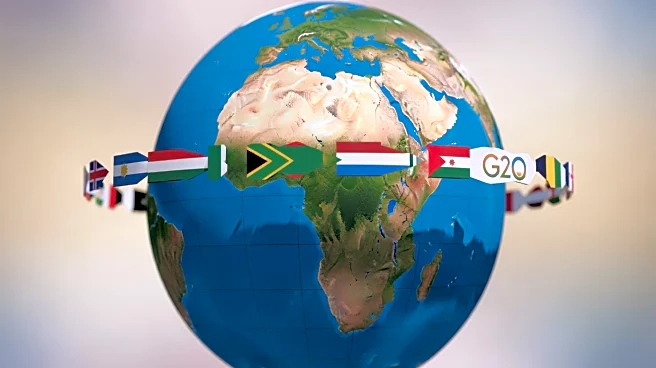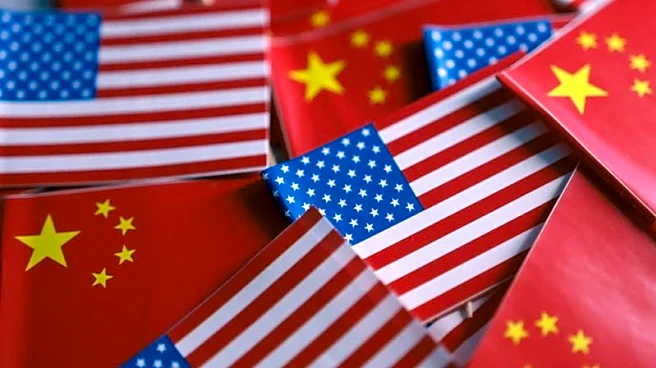What's Happening?
President Trump has expressed his belief that South Africa should no longer be part of the G20, citing issues within the country as justification. This statement was made during a conference in Miami, where Trump criticized South Africa's current state and
announced he would not attend the upcoming G20 summit in Johannesburg, opting to send Vice-President JD Vance instead. The G20, an informal forum established in 1999, comprises the world's largest economies and aims to promote international economic cooperation. South Africa, currently holding the G20 presidency, has faced criticism from Trump, who has accused the country of discriminating against its white minority. Despite these tensions, South Africa remains committed to hosting a successful summit, emphasizing themes of solidarity, equality, and sustainability.
Why It's Important?
The call for South Africa's removal from the G20 by President Trump highlights ongoing diplomatic tensions between the U.S. and South Africa. This development could impact international relations and economic cooperation within the G20, as the forum relies on consensus among its members. South Africa's role in the G20 is significant, given its position as Africa's largest economy and its efforts to address global economic challenges. The U.S.'s stance may influence other member countries' perceptions and interactions with South Africa, potentially affecting trade and diplomatic relations. Additionally, Trump's comments may exacerbate existing racial tensions within South Africa, as they touch on sensitive issues of land ownership and minority rights.
What's Next?
As the G20 summit approaches, South Africa is likely to continue its preparations, focusing on its agenda of solidarity and sustainability. The U.S.'s decision to send Vice-President JD Vance instead of President Trump may alter the dynamics of the summit, potentially affecting discussions and outcomes. Other G20 members, particularly those with strong ties to South Africa, such as the European Union and China, may respond to Trump's comments by reaffirming their support for South Africa's participation. The situation may also prompt further diplomatic efforts by South Africa to mend relations with the U.S., possibly involving negotiations on trade tariffs and other economic issues.
Beyond the Headlines
The broader implications of this development include potential shifts in global economic alliances and the role of emerging economies in international forums. South Africa's emphasis on addressing the impacts of colonialism and promoting equality within the G20 could resonate with other developing nations, potentially leading to stronger coalitions within the group. The situation also underscores the challenges of balancing national interests with global cooperation, as countries navigate complex geopolitical landscapes. The outcome of this diplomatic tension may influence future G20 agendas and the inclusion of diverse perspectives in addressing global economic issues.
















